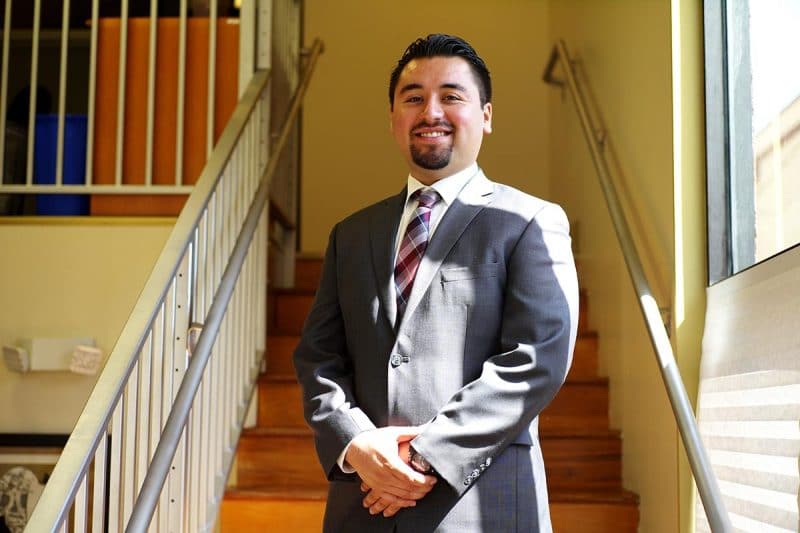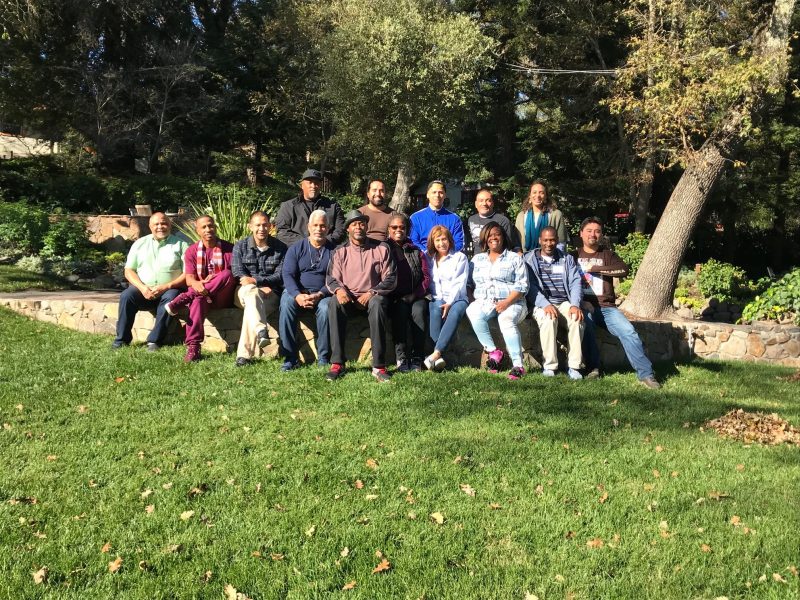
The Returning Citizens Fellowship, a Rockwood Leadership Institute program, is for emerging leaders who have been incarcerated. It aims to uphold the dignity of all by challenging the negative stigma of incarceration. Formerly-incarcerated people are often unable to secure well-paying jobs and are denied many benefits of citizenship such as voting rights, the ability to serve on a jury, and access to social welfare programs. This fellowship helps returning citizens overcome these difficulties by providing leadership training and networking opportunities. The fully funded program consists of two leadership conferences, mentoring, and networking opportunities with established social justice leaders.
We talked to Brayan Pelayo Corona, who was a Returning Citizens Fellow in 2017, to learn more about the fellowship and get some tips for preparing an application!
1. What inspired you to apply for the Returning Citizens Fellowship?
My background in regards to the fellowship is that I am formerly incarcerated, earned my General Education Diploma (GED) in juvenile hall, attended community college, and transferred to UC Berkeley. I also worked at the W. Haywood Burns Institute for the first year after graduating Cal. At the BI, or Burns Institute, I learned about dismantling structural racism through a collaborative approach to youth justice reform in counties and cities across the country. The communities I joined and formed while at the BI led me to the Returning Citizens Fellowship (RCF) opportunity. I applied and was selected to be a RC Fellow (with all expenses paid).
My relations propelled me into this opportunity while, simultaneously, my self-identification as formerly incarcerated attracted me to the fellowship. A mentor of mine, Juan Gomez, a trusted leader at the Motivating Individual Leadership for Public Advancement (MILPA) Collective, nominated me as an applicant. His trust in me and vision for my future propelled me to apply.
For me, the fellowship’s focus on “… leadership development opportunities to formerly incarcerated, emerging leaders to transform the stigma of incarceration while upholding the dignity and humanity of all people…” is integral to what I hoped to gain from it: community; a sense of belonging; professional development; positive leadership practices; and, most of all, personal growth.
As someone who comes from the San Francisco community and is working in the Fruitvale District of Oakland, I hear the cries of justice, smell the aroma of community love, and clearly see a vision for a better tomorrow that includes changing the way we treat people who are formerly and currently incarcerated. It is also about being forward-thinking and changing the way our criminal justice system functions so that we can prevent incarceration in the first place.

2. How has the fellowship experience influenced your current work?
Before the fellowship, I was left to my own devices when reflecting on the work I was doing to help the community. Though my process was thorough, it was clumsy and unstructured. This fellowship helped me learn about and implement organized, consistent self-reflection as I do my work. To participate in the fellowship, preparation is required to make the most of this retreat. You have to submit your own 360-evaluation and have a total of approximately 10 people you work with – they could be mentors, clients, or coworkers – also submit one 360-evaluation each. This feedback gives you quantitative and qualitative data about your leadership to reflect on, internalize, and improve upon.
The Returning Citizens Fellowship inspired confidence in me as a first-generation professional by exposing me to effective leadership practices and organizational culture-creation. There are many leadership practices that you engage in while you attend the fellowship and continue to practice upon completion. After you complete sessions 1 and 2, you team up with someone from each retreat to hold each other accountable to your respective leadership development goals.
This fellowship influences my current work and interests because I can now work more effectively as a team member. During the fellowship, we worked with our peers interpersonally and in groups on practices and skills. I learned that leaders are excellent communicators who constantly practice their known skill set and tactically learn from and through others. To me, leadership is based in humility, which is both the foundation of lifelong learning and a leadership practice to improve oneself.
3. What tips would you give others applying to the Returning Citizens Fellowship?
What made my application stand out, in my opinion, is that I have been involved in building a national organization for the past three years while also engaging daily in the crux of youth leadership development. I have been involved with developing the National Alianza for Latino Youth Justice, an organization dedicated to advocating for justice reform that takes into account the well-being of all children. It also emphasizes technical consulting to strategically involve Latino/a/x communities across the country in our justice system. We work towards both intervention and prevention through healing-informed strategies and paradigms. I believe that my intersecting identities and experiences with national juvenile justice reform combined with my formal and street education make me unique since I work in a job dedicated to youth leadership development. My duties with students are essentially twofold: 1) teaching students through a weekly class for three years about civil rights, social justice, government, ethnic studies, history, and legal trial skills while also 2) advising them to apply and earn acceptance into top-notch colleges and universities.
In terms of the application, I believe that they are looking at candidates through a personal and a professional lens. In terms of the personal: if you have a strong urge to speak up for justice by helping a young girl who is in juvenile hall for defending herself against bullies in her new foster home, if you have heart to help a teenage boy doing life in prison for selling drugs, if you are someone who yearns to help others, especially the formerly incarcerated, and if you are open minded to learning leadership skills, then I recommend you apply. In terms of the professional: if you are determined to advocate for formerly incarcerated individuals and communities of color; if you need to expand your leadership skills; if you are ready to absorb and use new techniques in your workflow and organization, then I think you should apply.
Brayan Pelayo Corona serves as the Program Coordinator for the Youth Law Academy (YLA) of Centro Legal de la Raza. Before joining Centro Legal, Brayan was an intern with Motivating Individual Leadership for Public Advancement (MILPA) and a Program Associate with the W. Haywood Burns Institute. As a formerly incarcerated youth he received his GED from juvenile hall, earned two A.A. degrees from College of San Mateo, and graduated from U.C. Berkeley in 2014 with a degree in Peace and Conflict Studies focusing on International Conflict Resolution. Combining his book and street smarts, Brayan is the happy uncle of Cienna, Emily, and Kimberly, a proud member of the Latino/a/x community in South San Francisco, and a zealous advocate for equitable justice reform.
Interested in applying? Bookmark the Returning Citizens Fellowship to your ProFellow account.
© Victoria Johnson 2018, all rights reserved